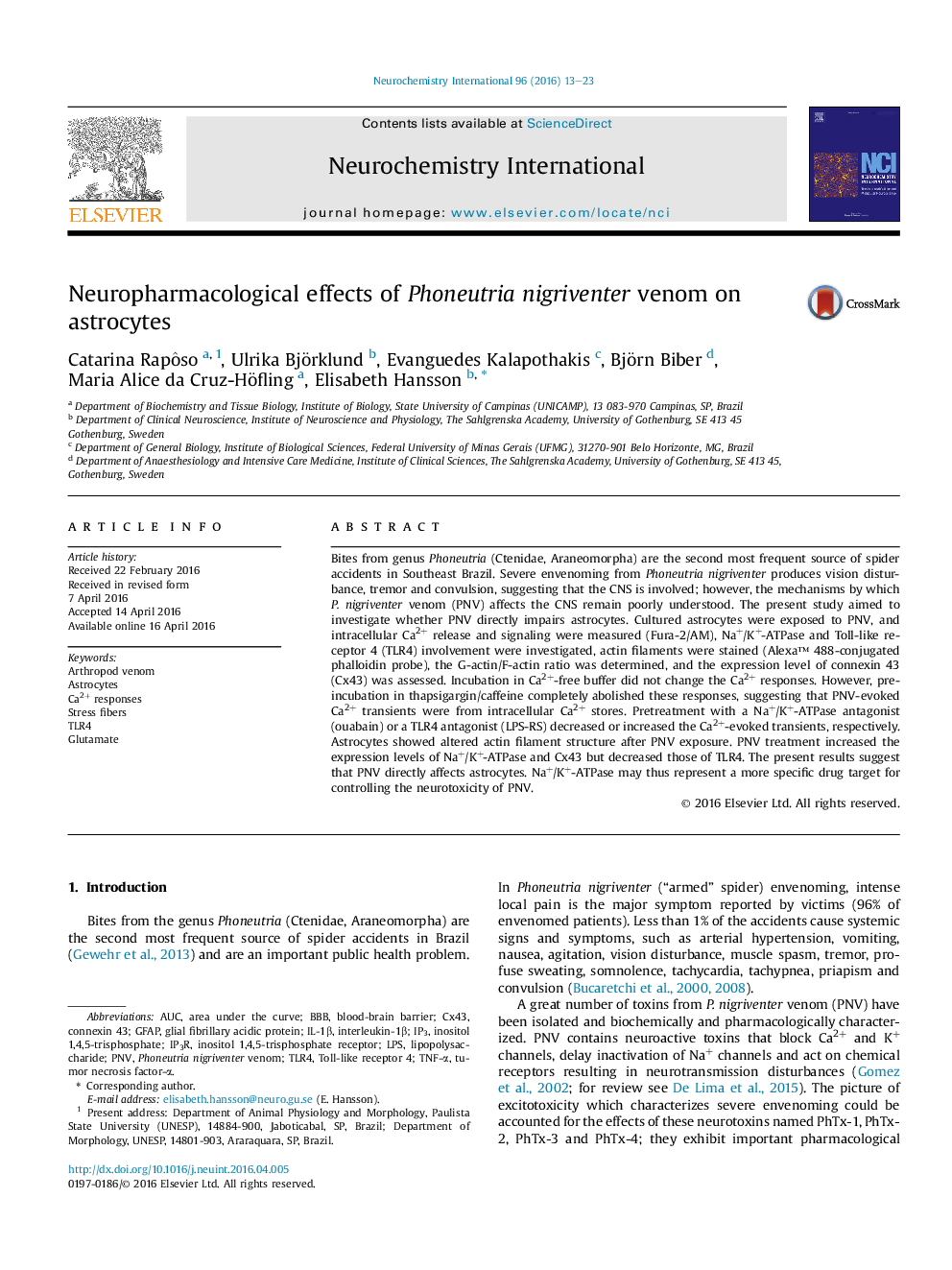| Article ID | Journal | Published Year | Pages | File Type |
|---|---|---|---|---|
| 2200313 | Neurochemistry International | 2016 | 11 Pages |
•Bites from spiders are a public health problem in Brazil.•Mechanisms of Phoneutria nigriventer venom in CNS are poorly understood.•The study showed that PNV directly affected astrocytes.•Na+/K+-ATPase may be a drug target in envenoming treatment.
Bites from genus Phoneutria (Ctenidae, Araneomorpha) are the second most frequent source of spider accidents in Southeast Brazil. Severe envenoming from Phoneutria nigriventer produces vision disturbance, tremor and convulsion, suggesting that the CNS is involved; however, the mechanisms by which P. nigriventer venom (PNV) affects the CNS remain poorly understood. The present study aimed to investigate whether PNV directly impairs astrocytes. Cultured astrocytes were exposed to PNV, and intracellular Ca2+ release and signaling were measured (Fura-2/AM), Na+/K+-ATPase and Toll-like receptor 4 (TLR4) involvement were investigated, actin filaments were stained (Alexa™ 488-conjugated phalloidin probe), the G-actin/F-actin ratio was determined, and the expression level of connexin 43 (Cx43) was assessed. Incubation in Ca2+-free buffer did not change the Ca2+ responses. However, pre-incubation in thapsigargin/caffeine completely abolished these responses, suggesting that PNV-evoked Ca2+ transients were from intracellular Ca2+ stores. Pretreatment with a Na+/K+-ATPase antagonist (ouabain) or a TLR4 antagonist (LPS-RS) decreased or increased the Ca2+-evoked transients, respectively. Astrocytes showed altered actin filament structure after PNV exposure. PNV treatment increased the expression levels of Na+/K+-ATPase and Cx43 but decreased those of TLR4. The present results suggest that PNV directly affects astrocytes. Na+/K+-ATPase may thus represent a more specific drug target for controlling the neurotoxicity of PNV.
